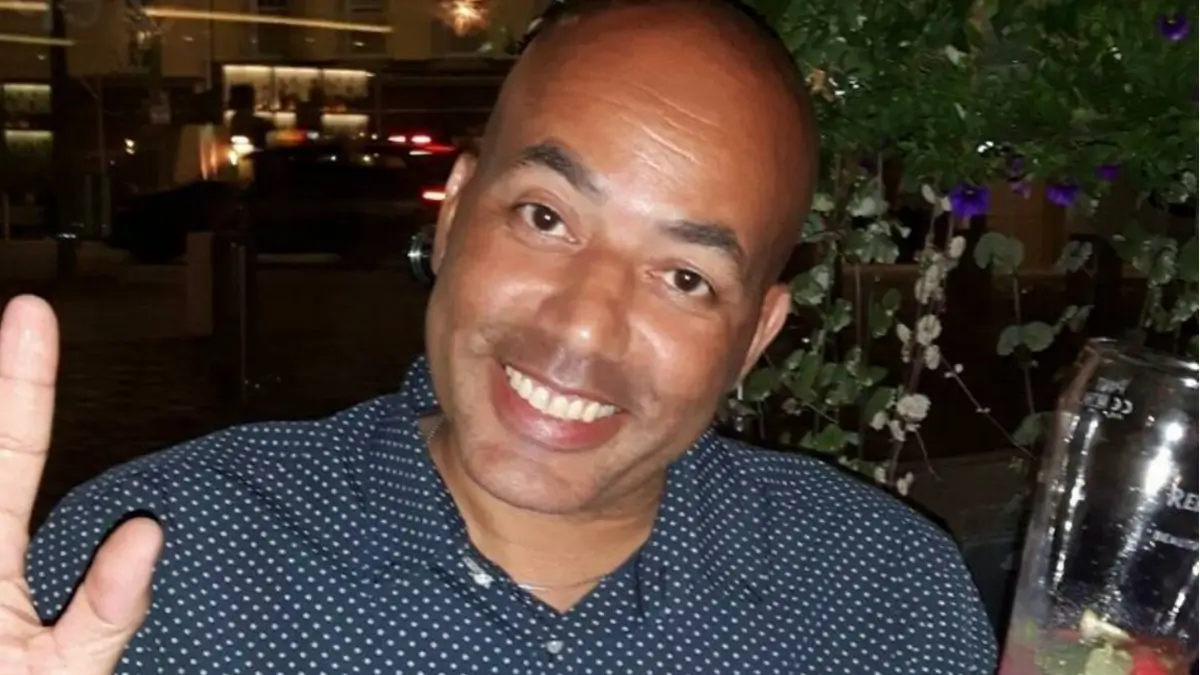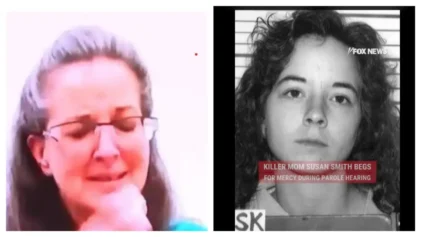Black firefighters in southwest England who faced decades of racist treatment, bullying and hostility from their colleagues got an apology this week from the fire chief after a shocking report about longstanding and systemic racism in the fire service was released.
An independent investigation into allegations of racism in the Gloucestershire Fire and Rescue Service, which began in 2023 and included interviews with 40 current and former staff members, found distinct patterns of institutional racism within the organization from 1991 to 2018, reported the International Fire and Safety Journal.
That included instances when Black firefighters were put in dangerous situations by fellow firefighters, who also subjected them to racial harassment, racial slurs and swastikas.

Among those habitually mistreated was Avanos Biney, a Black firefighter who served from 1998 to 2001 and who took his own life in 2017 at the age of 49.
The report said Biney was considered knowledgeable and reliable by his supervisors, who gave him high marks and commendations for his performance. But his colleagues often made racist remarks in his presence and denigrated him and other Black firefighters.
A fellow firefighter was handed an “equal opportunities” document, and his reaction in front of Avanos was, “What a fu—ing” waste of time.”
The report also says Biney discovered the N-word written on his tee shirt after a volleyball game, and swastikas were placed in his belongings.
He was subjected to isolation and intimidation and was alternately ignored by or stared at by colleagues. His food was tampered with, itching powder was placed in his kit and bed, and glass was put in his shoes.
The report said Biney was also subjected to hazardous situations orchestrated by colleagues. On one occasion, when Biney was sent up a fully extended platform ladder that was not safely secured, other firefighters manipulated the ladder to sway and spin, causing him distress.
Biney recorded the incident, saying, “As you can see, this is their idea of fun, swaying me to and fro. Been up here for about 10 minutes now. Getting rather tedious and also making me feel rather sick.”
Despite his complaints to management and the Fire Brigades Union, no action was taken against those involved. A subsequent tribunal application for racial discrimination and victimization that Biney filed in 2002 was dismissed because it was filed beyond the allowable time.
Biney resigned and later worked for another fire and rescue service in Jersey. He committed suicide in 2017 at the age of 49.
His family, who remember him as gregarious, generous, funny, and selfless, sought acknowledgment of the institutionalized racism and other misconduct that contributed to his negative experiences at the Gloucestershire Fire and Rescue Service.
Biney’s nephew Curtis Biney, who lived with him at the time of the abuse while Avanos was employed by GFRS, told the BBC, “He was subjected to bullying and segregated from everybody else. People doing things to his locker, there were things said in front of him. Things said about him. In the long and short it came down to a group of people who felt they were able to do these things without any kind of reprimand.”
Because of the lack of accountability among top management, “There’s no path to stopping it,” he said. “You deal with it on your own, you get up you go to work and do your job, and keep quiet. That’s horrendous.”
Curtis Biney said the investigation and report was “long overdue.”
The independent review led by West Midlands Employers found that GFRS had been institutionally racist between 1991 and 2018 but that the service is not institutionally racist today as a result of reforms implemented over the past few years.
Beyond the systemic racism and shocking instances of racial discrimination over time, organizational failings identified in the report include leadership that prioritized operational competence over people management and inclusivity, a lack of psychological safety when raising concerns with inconsistent and ineffective grievance processes, and widespread historical misogyny, reported Gloucestershire Live.
Chief Fire Officer Mark Preece issued a formal apology on behalf of the GFRS, saying he accepted the findings and committed to continue transforming the service.
“I want to apologise to our firefighters and staff past and present that have been subjected to the horrendous acts of discrimination, or witnessed, whistle-blown and tried to support victims as best they could with little or no support,” he said.
“I fully accept the finding that the Service was institutionally racist between 1991 to 2018, and that coupled with a lack of action from those leading the GFRS during this time made life unbearable for our Black and ethnic minority firefighters. … I am not saying that racism, misogyny and bullying have been eradicated. There is still work to be done.”
Of Biney and other Black and ethnic minority firefighters who faced discrimination, Preece said:
“I want to make it clear that they were not troublemakers, they were trail blazers. The bravery of these individuals and family members that have spoken up in the past and again now are breaking down barriers as well as challenging ignorant, long-held views and stereotypes. Their dedication to making a change for good must be recognized and the legacy of everyone reliving the trauma must be lasting and meaningful.”
The Fire Brigades Union (FBU) said it would push for more government action and called for the establishment of a statutory advisory body to monitor professional standards across all fire and rescue services, as reported by the International Fire and Safety Journal.
Describing the report as exposing “decades of appalling institutional racism,” Ben Selby, assistant general secretary of the FBU, faulted fire service management for overlooking complaints and failing to protect Black firefighters. He called for the service to “confront its history and take action to root out racism in all forms.”
Former GFRS Chief Fire Officer Jon Hall told the BBC he brought up the concerns of Black firefighters in 2013 when he discovered after meeting with them that no Black firefighter had ever been promoted above that initial rank within the service. But it took another decade for those systemic concerns to be addressed.
“This damning report highlights the extent of the issue, with fire service leaders burying their heads in the sand over decades,” said Val Hampshire, the FBU executive council member for the South West. She said collaboration between the fire service and the FBU is key to achieving a lasting impact in addressing both racism and misogyny.
GFRS was placed into special measures over its performance and failure to address diversity issues and promote a positive workplace culture in July 2022. In August 2023, the service announced that it had launched a new workplace charter, setting out the behaviors, ethics and values of the service. It also committed to an independent review, reported the BBC.
Those announcements followed an independent report in 2022 that found the London Fire Brigade to be “institutionally misogynist and racist” and a report by His Majesty’s Inspectorate of Constabulary and Fire & Rescue Services in March 2023 that found “bullying, harassment and discrimination” in every fire and rescue service in England.
If you or someone you know is struggling with thoughts of suicide, please seek help immediately. You can contact the National Suicide Prevention Lifeline at 1-800-273-8255 for confidential support available 24/7. You are not alone.


